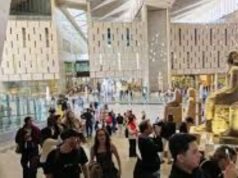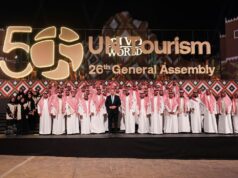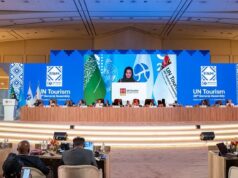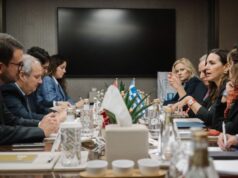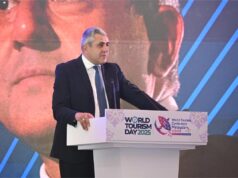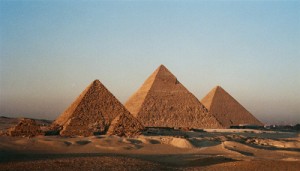 UNWTO is advancing its collaboration with Egypt to strengthen tourism competitiveness in the country. Areas of cooperation include new accommodation quality standards, the development of the Tourism Satellite Account (TSA) and the UN Millennium Development Goal Fund (MDG-F) Dahshour project on rural tourism.
UNWTO is advancing its collaboration with Egypt to strengthen tourism competitiveness in the country. Areas of cooperation include new accommodation quality standards, the development of the Tourism Satellite Account (TSA) and the UN Millennium Development Goal Fund (MDG-F) Dahshour project on rural tourism.
The cooperation established on accommodation standards follows the desire expressed by Egypt to enhance its hospitality industry as the country witnesses a significant surge in investment especially in the hotel industry. Hotel capacity has increased by approximately 7.000 rooms in the period of one year to a total of 220.000 hotel rooms. Under this partnership, UNWTO has trained a select group of specialized auditors which now carry out quality audits of Egyptian accommodation establishments.
UNWTO is also working closely with Egypt in enhancing its capacity to measure the economic impact of tourism and provide consistent, internationally benchmarked tourism statistics by strengthening the TSA project. This will allow providing supporting evidence to consolidate tourism’s economic significance as well as its social impacts, potential and future prospects. Progress has been made to date on issues such as estimates of inbound, domestic and outbound tourism consumption, employment in the tourism industries as well as non-monetary indicators.
Meanwhile, the Dahshour MDG-F project will help foster the development of sustainable rural tourism through capacity building initiatives promoting entrepreneurship for tourism SMEs, the development of tourism guides and enhancement of national capacities to protect and manage the archaeological and natural resources of the area. The project is financed by the Government of Spain/UN MDG-Fund and implemented in partnership with five UN agencies (UNDP, UNESCO, UNIDO, ILO and the UNWTO) and five partner institutions of the Government of Egypt including the Ministry of Tourism.
These initiatives will contribute to reinforce Egypt’s position as one of the leading tourism destinations worldwide and supporting a critical economic sector to the Egyptian economy. In 2009, the country received 12.5 million international visitors, generating US$ 10.8 billion (euro 7.7 billion). In the period January to November 2010, the number of visitors to Egypt increased by 18%, while revenues reached US$ 11.5 billion, an increase of 16%.
Much of this growth has become possible due to the strong support given to the tourism sector in the country by public and private stakeholders, moving forwards the development of important historical and natural products including the implementation in Cairo of a project to preserve all religious buildings, the development of ecotourism in Siwa Oasis, Egyptian Western Desert, or the advancement of new destinations such as Marsa Alam and the North Coast.
Tourism represents Egypt’s largest growing source of foreign currency and the main generator of employment opportunities. To enhance tourism’ potential as a job generator the government has invested strongly in human resources. The Ministry of Tourism in cooperation with the Egyptian Tourist Federation have been implementing an intense human resources training program with the participation of over 100.000 trainees. Specific training includes that of drivers of tourist vehicles. In this framework, a dedicated training centre has been built, which is the first of its kind in the Middle East.


